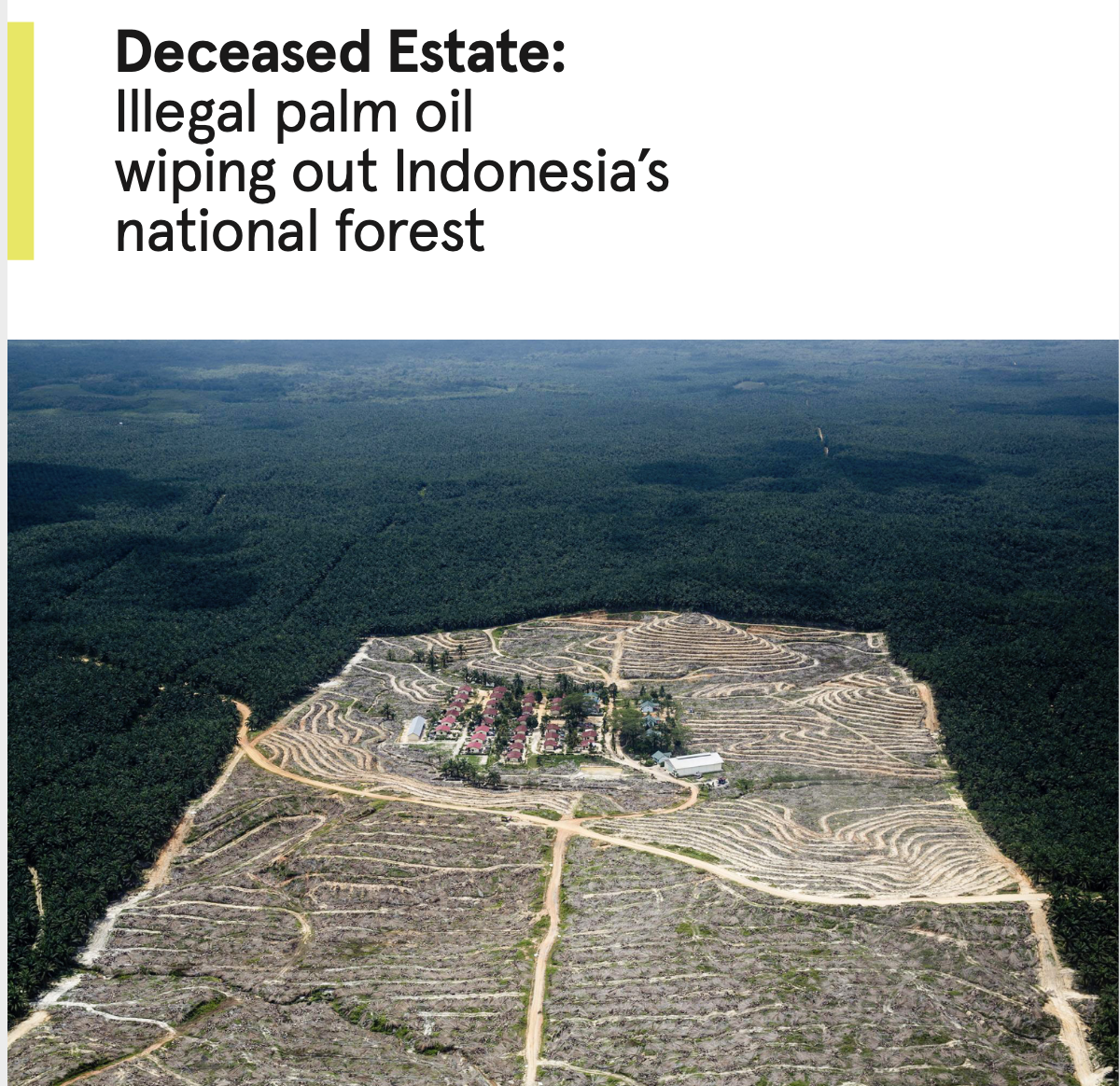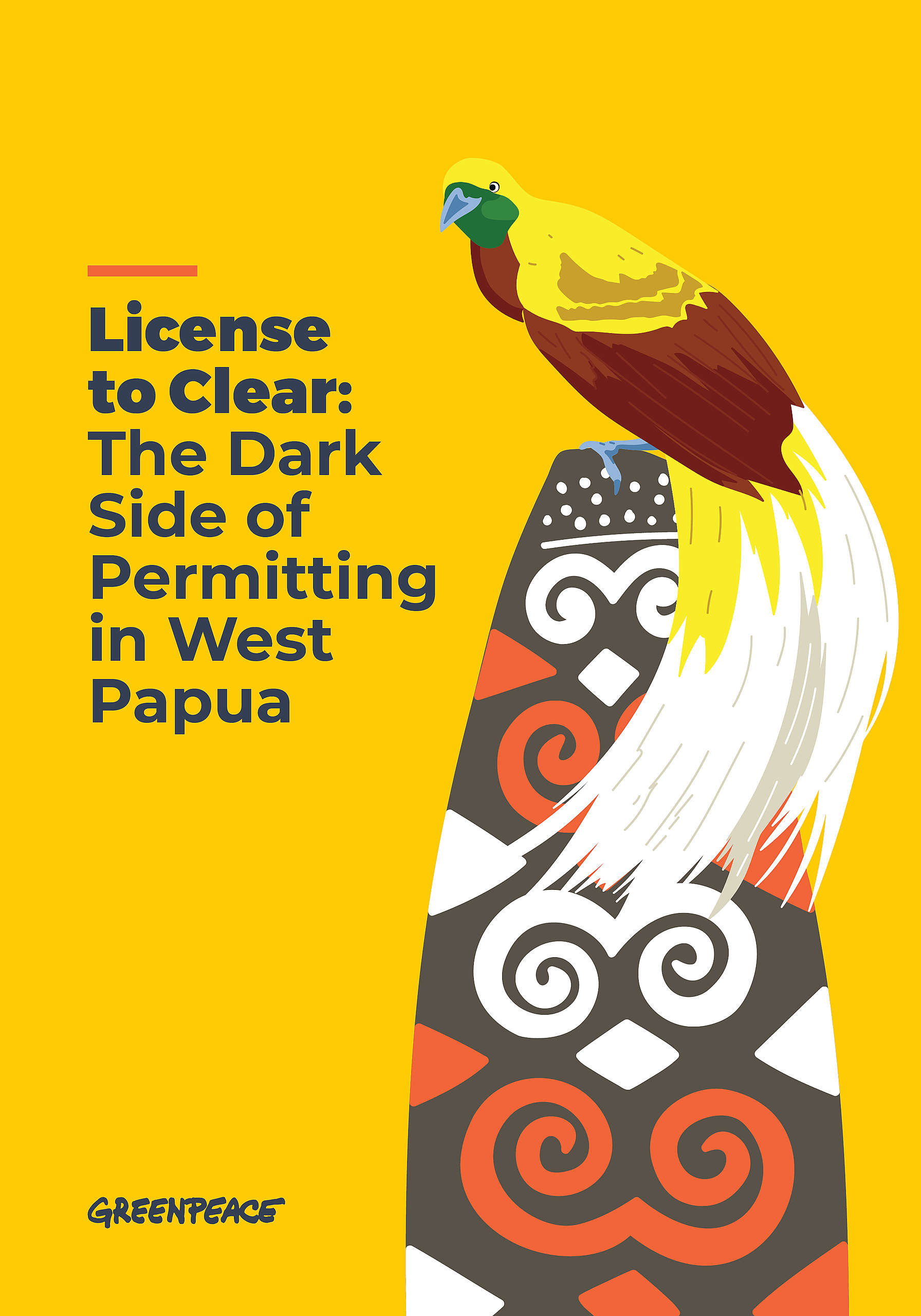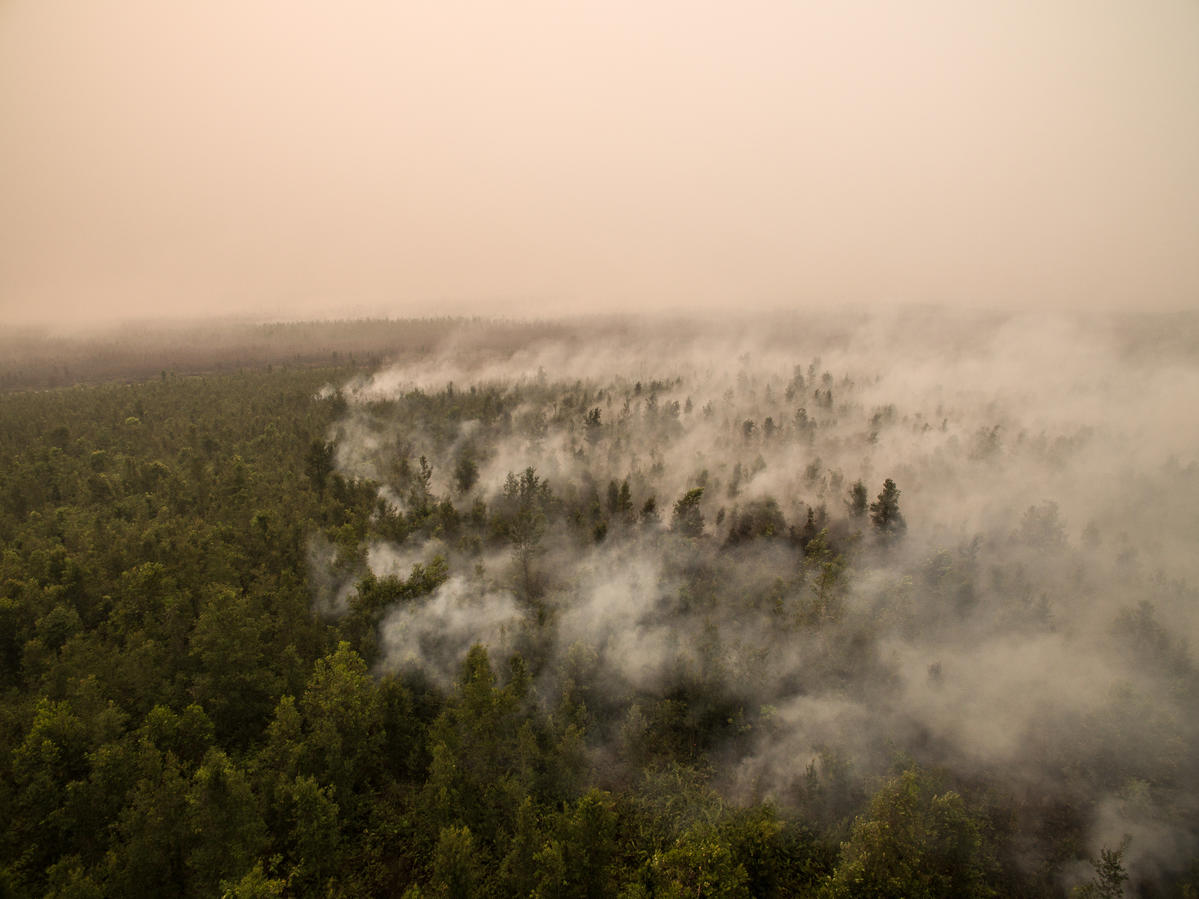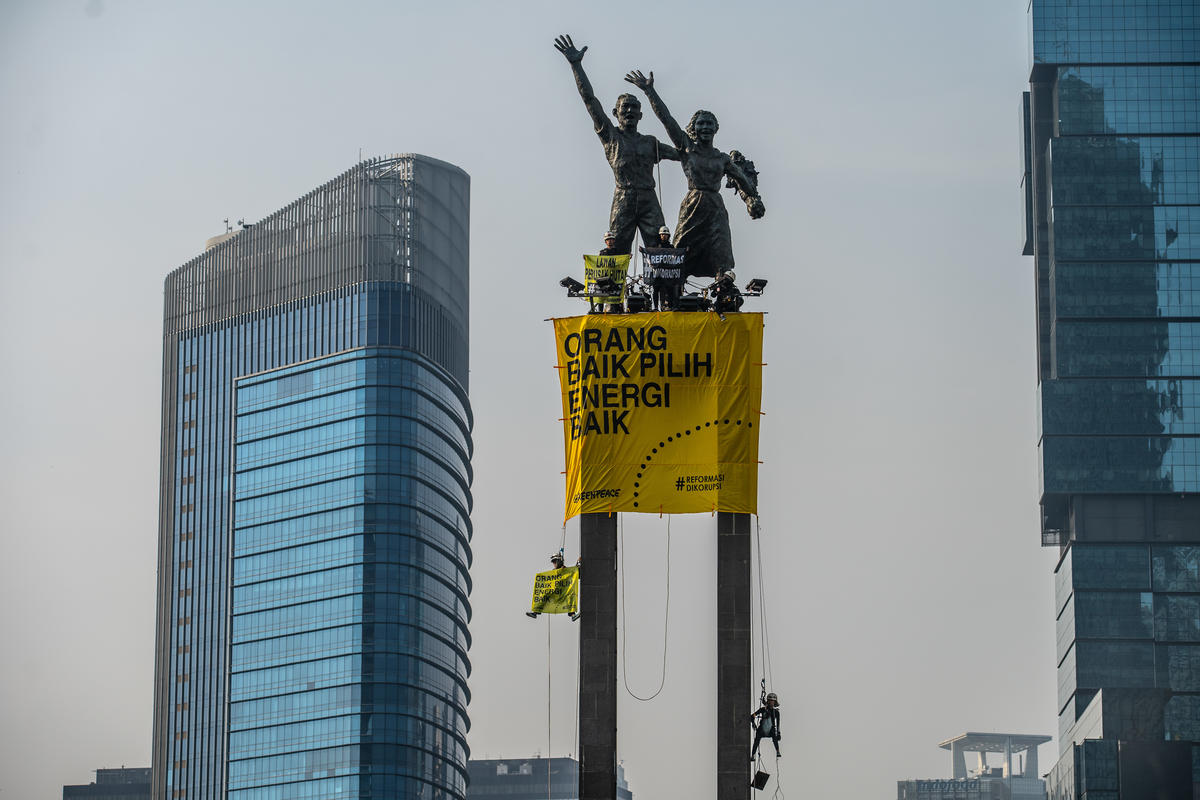All articles
-
Deceased Estate: Illegal palm oil wiping out Indonesia’s national forest
Indonesia’s remaining forests are at the nexus of intersecting crises of dwindling biodiversity, climate change and Indigenous rights violations. Megadiverse and carbon rich, these forests are home to over 2,000 Indigenous communities for whom cultural identity and livelihood are bound up with the land.
-
Licence to Clear
This report urges national and provincial governments in Indonesia to seize a fleeting opportunity to intervene in a vast area slated for deforestation for palm oil in Papua Province.
-
Investigation indicates FSC-certified company intentionally used fire to clear Indonesian forests for palm oil
Greenpeace International collaborated with Forensic Architecture – a research collective based at Goldsmiths University of London, which uses spatial analysis to reconstruct cases of human rights violations and environmental destruction – to investigate whether the cause of the fires could be identified in Korindo’s palm oil concessions in Papua.
-
Greenpeace’s Response to Sime Darby Announcement to Exit from the HCSA Steering Committee
In response to Sime Darby announcement to exit from the HCSA steering committee, Grant Rosoman Global Forest Solutions Coordinator for Greenpeace International said:
-
Shocking images of critically endangered tiger caught in a trap
A critically endangered Sumatran tiger trapped in a snare in a pulp concession operated bay Sinar Mas Group’s Asia Pulp and Paper (APP) - one of the world’s biggest paper producers - has died after days without access to food and water. PT Arara Abadi, the concession where the tiger was found, has recorded one…
-
RSPO’s 2013 maps resolution languishes despite announcement
“Too little, too late” said Annisa Rahmawati, Greenpeace Indonesia Senior Forest Campaigner, of the RSPO’s announcement it has published members’ oil palm concession maps for Peninsular Malaysia and Sarawak in its own online application.
-
The RSPO dodges responsibility for its members’ role in Indonesia’s fires crisis
Greenpeace International’s newly published report Burning Down the House shows that 21 of the 30 palm oil producer groups most strongly associated with Indonesia’s ongoing fires crisis are (in whole or part) members of the Roundtable on Sustainable Palm Oil (RSPO). Collectively these RSPO members and their associates account for three-quarters of the fire hotspots…
-
Joint NGO statement on failure of RSPO to meet the demands of global climate crisis
Last year, RSPO members approved a new set of Principles and Criteria that align with the global “No Deforestation, No Peat, and No Exploitation” policies of many of its members. Yet the RSPO’s new standard will only be meaningful if it is audited and upheld in a thorough, comprehensive and competent way.
-
Top consumer companies’ palm oil sustainability claims go up in flames
Unilever, Mondelez, Nestle, and P&G are each linked to up to 10,000 fire hotspots, as they buy from palm oil producer groups with the highest numbers of fire hotpots in 2019. The palm oil traders Wilmar, Cargill, Musim Mas, and Golden-Agri Resources (GAR) have extensive links to this year’s fires in Indonesia and together supply…
-
Greenpeace unfurls two urgent messages for Jokowi’s second term
Two giant banners were dropped from Jakarta’s most iconic statues this morning: the Aerospace Statue at Pancoran in South Jakarta, and the Welcome Statue which stands at the heart of the city at the Hotel Indonesia Roundabout. The urgent messages, addressed to President Joko Widodo (Jokowi) call on him to drop dirty coal energy and…








